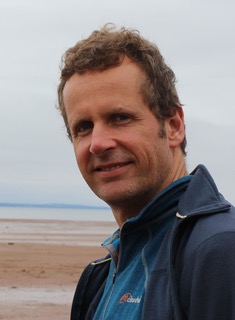Blake Poland

Black Poland
A Mindful Society (amindfulsociety.org) is an annual forum for those interested and/or active in taking mindfulness practice ‘off the cushion’ and into all sectors of society. In addition to pre- and post-conference workshops, led this year by Dr Dan Seigel and Thupten Jinpa (the Dalai Lama’s personal translator) respectively, over 500 delegates were treated to two days of plenary concurrent sessions include practice sessions, presentations from leaders bringing mindfulness into health care, education, prisons, law enforcement and other sectors, as well as poster sessions, and panel discussions, addressing issues of mindful leadership, the power of compassion, transformative social change, and more.
Dan Seigel’s keynote addressed the need for cultural evolution to meet the challenges of the Anthropocene, and offered the lens of quantum science for debunking the prevailing Story of Separation. As he put it, “when you awaken to our interconnectedness, everything changes”. The symposium was a refreshing and timely dive into the role that mindfulness and present-moment-awareness can play in the bigger tapestry and agenda of transformative change from the inside out, recognizing that transformative change will require significant changes in ways of being, and not just ways of doing. Indeed, the conference theme this year was “Be. Act. Belong”. Seigel’s Wheel of Awareness practice, and the 3 pillars of mind training (focussed attention, open awareness, kind intention), are practical tools that can be pressed in service of personal and collective transformation.
Jinpa’s keynote stressed the importance of compassion as a guiding principle and practice, unpacking how it is different from empathy and how it can be cultivated. Of particular interest was his assertion that compassion offers important elements of social justice and collective well-being that a focus on individual human rights do not necessarily invoke. Interestingly, that same weekend featured articles in the Guardian and several other UK newspapers about a new non-partisan bill being put forward that would require all new laws to pass a basic “compassion” test. One of the most intriguing studies cited during Jinpa’s talk was the work of Erica Chenoweth, a political scientist at Harvard, on nonviolent social movements, showing that once approximately 3.5% of the population actively participates in protest, significant political change ensues.[1] This is surely a hopeful message for those socialized by conventional thinking to believe that nothing changes until a ‘majority’ of people are on board. The work of Dan Seigel and others represented at A Mindful Society takes this even further, showing how work at the level of matter and energy is inter-related and how the combination could be significant. On this latter note, the parallels between what Seigel and others were sharing, and what Joe Dispenza and others have written about the possibilities of creating from the quantum field, where all possible futures already exist, accessed through present-moment-awareness, were intriguing. It suggests that a sea-change in thinking toward radical relationality and an awakened potential for enlightened co-creation of what Charles Eisenstein calls “The More Beautiful World Our Hearts Know is Possible”, is now well within our grasp individually and collectively.
Although I started meditating when I was a child, this conference was a new experience for me, and a window into a wonderful and vibrant community of people committed to taking meditation ‘off the cushion’ and into everyday life, including into sectors where it has the capacity to contribute significantly to human flourishing and healthy reciprocity with the more-than-human world. As someone with a keen interest in the relationship between inner and outer change, and oriented to the question “From what state of being do we source our doing?” at this time of momentous change ripe with possibility for an evolutionary leap in human consciousness, A Mindful Society reflects and confirms the truism that one can’t change the world with the same level of thinking that created it, and that the next frontier in human evolution and transformative social change is as much a revolution in our inner landscape (a decolonization from dominant Western paradigm and a re-storying from the Story of Separation to the Story of Interbeing and Sacred Reciprocity).
References
[1] See http://www.bbc.com/future/story/20190513-it-only-takes-35-of-people-to-change-the-world and her 2012 book Why Civil Resistance Works (Columbia University Press)
About the Author
Blake Poland, PhD, is Associate Professor in the Dalla Lana School of Public Health, Director of the Collaborative Specialization in Community Development, co-lead of the Healthier Cities & Communities Hub at DLSPH, and co-Director of the WHO Collaborating Centre for Health Promotion, at the University of Toronto. His work focuses on community resilience, social movements as agents of change, the relationship between inner and outer change, community development theory and practice, critical social theory, dialogical methods, and sustainability transitions.

Thank you for this remarkable outline of the AMS conference and your appreciaiton of what we are trying to accomplish through communal shifts in awareness and advocacy, of compassion in action at all levels of society.